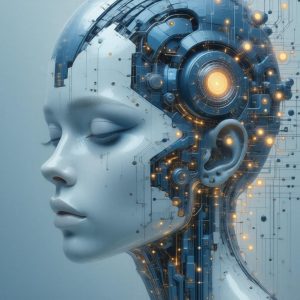The concept of human agents in artificial intelligence represents the crucial bridge between AI systems and human expertise. These individuals play a vital role in training, supervising, and improving AI models, ensuring they operate effectively and ethically in real-world applications.
Understanding Human Agents in AI
Human agents are skilled professionals who work alongside AI systems, providing human judgment, oversight, and intervention when necessary. Think of them as the coaches and referees in the AI world, making sure everything runs smoothly and according to plan.
These specialists perform various essential tasks, from labeling training data to reviewing AI outputs and fine-tuning algorithms based on real-world feedback. Their role is particularly crucial in maintaining the quality and reliability of AI systems that interact with everyday users.
Key Responsibilities of Human Agents
• Data Labeling and Annotation: Creating high-quality training datasets by manually tagging and categorizing information
• Quality Assurance: Reviewing AI outputs and identifying potential errors or biases
• Performance Monitoring: Tracking AI system behavior and effectiveness in real-time
• User Experience Enhancement: Providing human insight to improve AI interactions
• Safety and Ethics Oversight: Ensuring AI systems operate within established ethical guidelines
Real-World Applications
Human agents work across various industries and applications. For example, in content moderation for social media platforms, they help AI systems identify and remove inappropriate content while understanding context and nuance that machines might miss.
In customer service, human agents work alongside chatbots, stepping in when conversations become too complex or require emotional intelligence that AI hasn’t yet mastered. This hybrid approach ensures both efficiency and quality in customer interactions.
The Evolution of Human Agent Roles
As AI technology advances, the role of human agents continues to evolve. Rather than being replaced by AI, these professionals are finding their roles transformed into more specialized and strategic positions.
Current Trends
• Increased focus on AI ethics and bias prevention
• Greater emphasis on specialized domain expertise
• Development of new tools for human-AI collaboration
• Growing demand for AI training and oversight specialists
Challenges and Considerations
Working as a human agent in AI comes with its own set of challenges. These professionals must constantly update their skills to keep pace with rapidly evolving technology while maintaining the human touch that makes their role invaluable.
Common Challenges
• Balancing efficiency with accuracy
• Managing cognitive load during long review sessions
• Staying updated with new AI developments
• Maintaining consistent decision-making across teams
Future Outlook
The future of human agents in AI looks promising, with growing opportunities in various sectors. As AI systems become more sophisticated, the need for skilled human oversight and interaction will likely increase rather than decrease.
Emerging Opportunities
• AI ethics consulting
• Specialized data curation
• AI training program development
• Human-AI interaction design
Best Practices for Human Agents
To be effective in this role, human agents should follow certain best practices:
• Maintain regular training and skill updates
• Document decision-making processes
• Collaborate closely with AI development teams
• Practice active learning and adaptation
• Foster clear communication channels
The partnership between human agents and AI systems represents a crucial component in the successful deployment of artificial intelligence technologies. By understanding and appreciating the role of human agents, organizations can better prepare for the future of AI integration while maintaining the essential human element that makes these systems truly effective.



